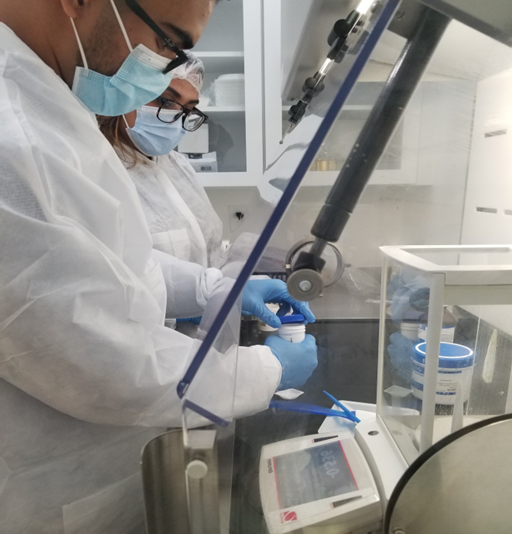About Compounding
Compounding is preparing personalized medications for patients. Compounded medications are made based on a practitioners’ prescription in which individual ingredients are mixed together in the exact strength and dosage. This method allows the compounding pharmacist to work with the patient and the prescriber to customize a medication to meet the patient’s specific needs.
What is compounding?
Pharmacy compounding is the art and science of preparing customized medications for patients. Its practice dates back to the origins of pharmacy. It declined in the 1950s and ‘60s as the pharmacist’s role changed from a preparer of medications to a dispenser of mass-manufactured products.
However, this “one-size-fits-all” approach to medication meant that some patients’ needs were unmet. Within the last few decades, compounding has experienced a renaissance, as modern technology, innovative techniques and new research have allowed more pharmacists to customize medications to meet a patient’s unique needs.
How does compounding benefit me?
Working with your health care provider, a compounding pharmacist can:
- Alter the form of your medication to make it easier to use or ingest.
- Add flavor to your medication to make it more palatable.
- Adjust the strength of your medication so that it meets your specific needs.
- Combine medications into one, easy-to-use form.
- In some cases, formulate medications that are no longer manufactured commercially.
Can my child or elderly parent take compounded medications?
Yes. Children and the elderly are often the types of patients who benefit most from compounding. If prescribed by your health care provider, a compounding pharmacist can change the form so that it is easier to use.
A compounder can also work with a physician and patient to select a flavor based on the patient’s preference. Flavoring options include bubble gum, grape, tutti frutti and vanilla butternut, among many others.
Compounding pharmacists also can help patients who experience chronic pain. For example, some arthritic patients cannot take certain medications due to gastrointestinal side effects.
Working with a physician’s prescription, a compounding pharmacist can provide these patients medications as topical creams that can be absorbed through the skin. Compounded prescriptions frequently are used to ease pain, nausea and other symptoms for hospice patients as well.
What prescriptions can be compounded?
Compounding pharmacists can prepare medication for various needs and applications, including:
- Bioidentical hormone replacement therapy
- Hospice
- Pediatrics
- Pain management
- Dentistry
- Otic (for the ear)
- Dermatology
- Medication flavoring
- Neuropathy
- Veterinary
- Sports medicine
- Infertility
- Wound and scar therapy
- Podiatry
- Gastroenterology
Is compounding legal? Is it safe?
The Food and Drug Administration has stated that compounded prescriptions are both ethical and legal as long as they are prescribed by a licensed practitioner for a specific patient and compounded by a licensed pharmacy. In addition, compounding is regulated by state boards of pharmacy.
Will insurance cover compounded medications?
Every prescription insurance plan is unique. Some insurance plans cover compounds directly at the pharmacy counter, and others may require the patient to submit a claim form.
Contact your prescription plan to see what their coverage is for your customized medication.
Is compounding expensive?
Compounding may cost more or less than conventional medication. It depends on factors such as the type of ingredients and equipment required as well as the time it takes the pharmacist to research and prepare the medication.
Does my doctor know about compounding?
Prescription compounding is becoming more well-known, but some may not realize the extent of its resurgence in recent years. Ask your physician/prescriber about compounding, or get in touch with a compounding pharmacy.

